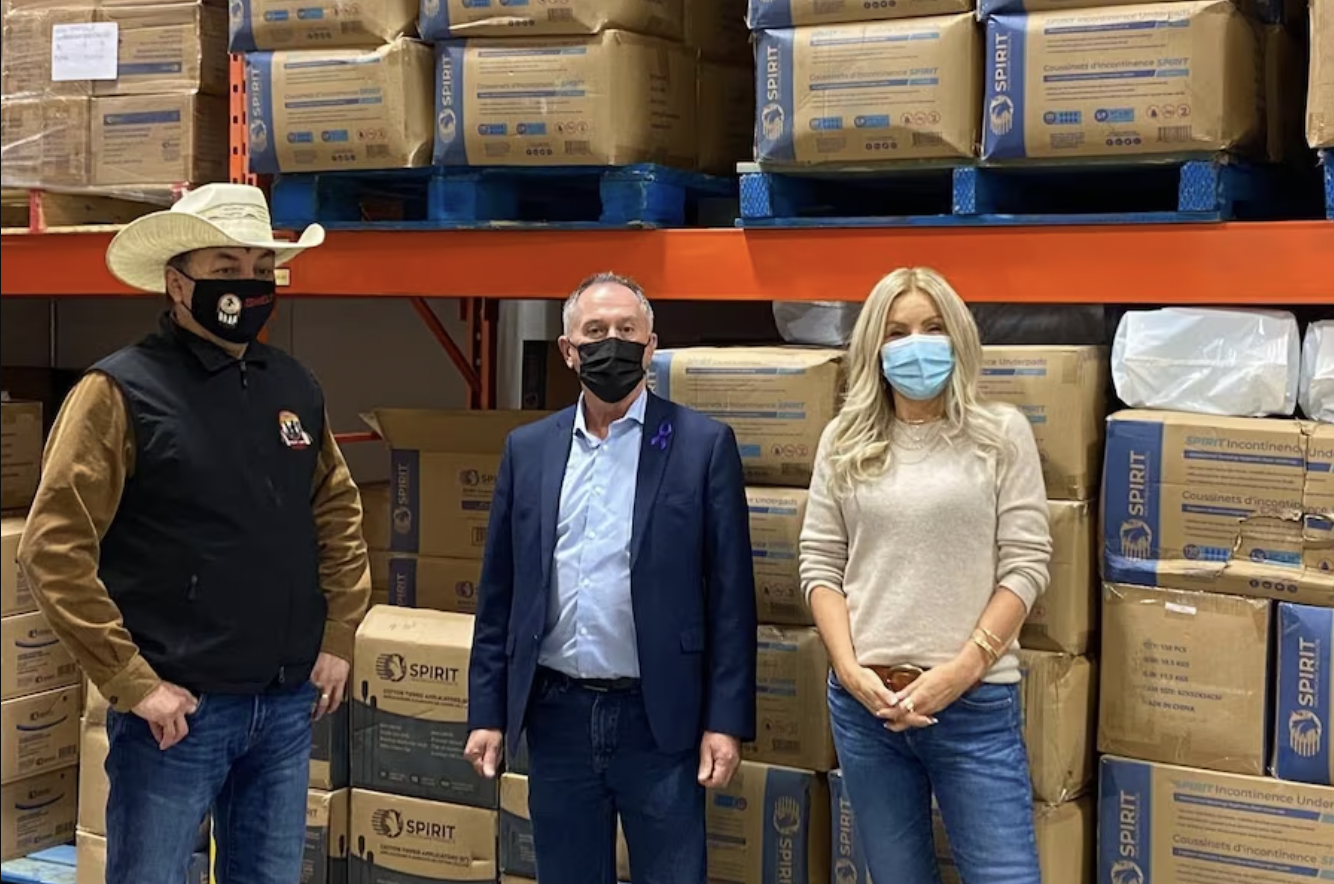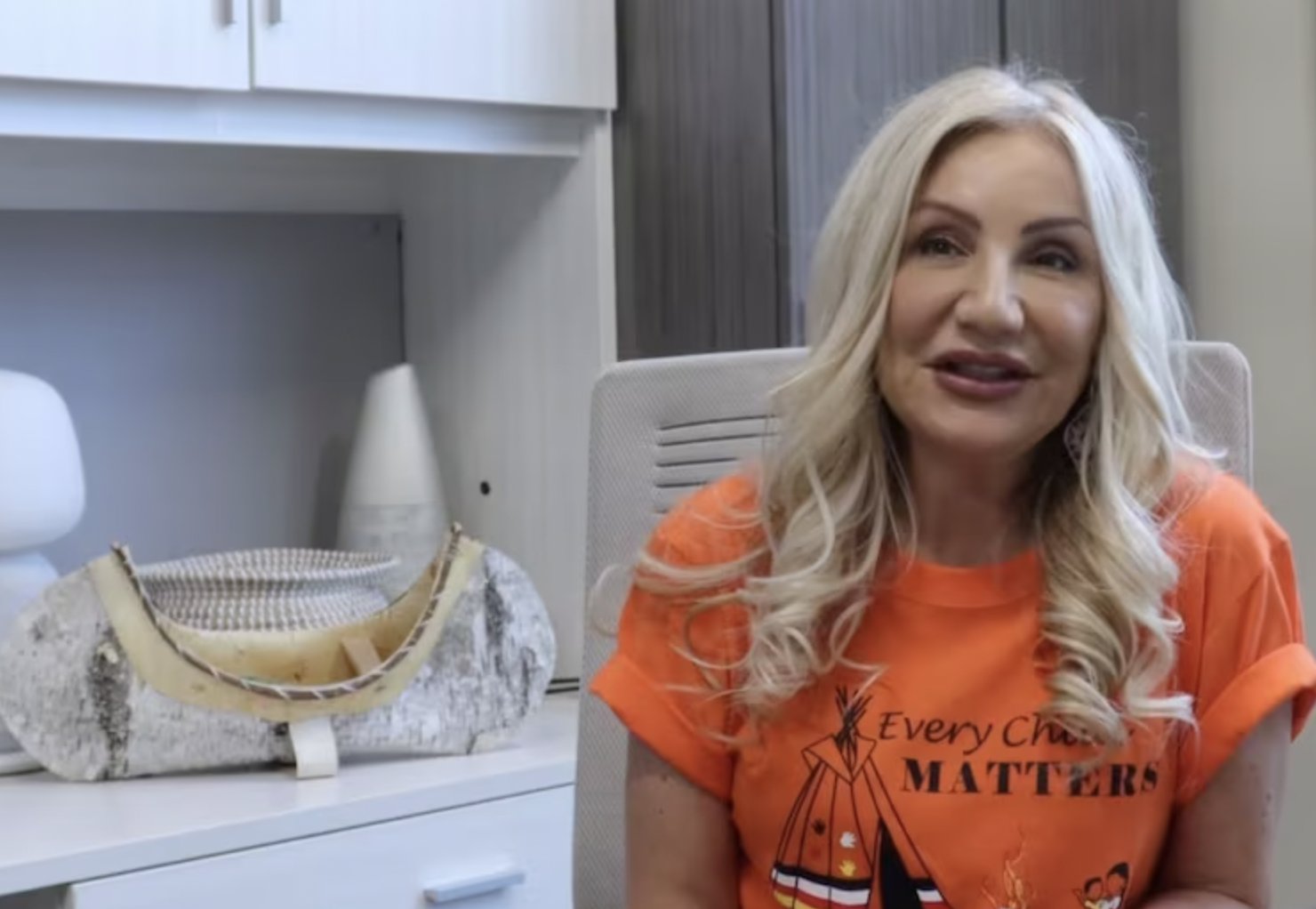Walk through NorthMart — and many other grocery, convenience and drug stores in Ontario, Manitoba, Saskatchewan and Nunavut — and you’ll find shelves full of products bearing the Spirit Healthcare Group logo.
The Manitoba-based company, which has three banners under its name, sells medical supplies, equipment and other healthcare-related products and facilitates the rapid delivery of medicines to people in rural and remote areas. Provides health benefit plans to corporations. Provides diabetes education.

The Native-owned company is dedicated to improving the quality of health care for Native customers, as well as growing the business to compete with decades-old corporations.
“We’re not trying to be a drug store for buyers — we’re trying to fill gaps in health care,” says Heather Berthlet, CEO of Spirit Healthcare Group.
Berthlet, or Red River Métis, has been associated with Spirit from the very beginning. He initially worked for Precambrian Wholesale Ltd., a company that delivers food to remote communities that was purchased a decade ago by Tribal Council Investment Group (TCIG), a corporation representing more than 50 First Nation communities.
In 2015, the entire organization focused on building a medical business based on the native worldview.
Berthlet explains that Atma is being restructured with the intention of taking its place in the multi-billion dollar health care industry from which indigenous people have historically been excluded.
The current goal is to become Canada’s default choice for healthcare products and supply all Canadian hospitals and healthcare centers by 2025. By then, Berthlet hopes to have more than 500 branded spirits products on offer.
The company’s first product was the Spirit Meter, a blood glucose tester for diabetics.
In Canada, Aboriginal people suffer from diabetes at higher rates than the general population. According to Diabetes Canada, they are more likely to be diagnosed at younger ages, have more severe symptoms, have higher rates of complications and poorer treatment outcomes.
The organization says this is linked to a lack of culturally appropriate care, high health staff turnover and a chronic lack of health services for indigenous communities.
Using a holistic approach to meeting these needs, Atma not only sells glucose meters, but also provides diabetes education. Customers can access weekly live programs in a group or one-on-one setting to learn about blood sugar testing, insulin and how to manage disease.
Since launching Spirit Meter in 2016, the company has released an additional 50 or more branded products, including medical tape, sponges and incontinence pads.
The fully compostable face masks, released in collaboration with PADM Medical, are an example of Spirit’s collaboration and work ethos. The masks are made from plant byproducts from farms in Alberta, Ontario and other parts of North America.
“[The average] mask will spend 450 years in a landfill. They take three months to decompose,” says Berthlet.
He wants Spirit to find a role in the larger Canadian pharmaceutical economy, working with an Indigenous worldview.
“Indigenous people have been major contributors to the broader economy in health care products, but they have never been allowed to participate in and benefit from the economy,” he says.
“Spirit needs to be part of this economy on a large scale, not small purchasing opportunities and small prospects,” says Berthlet.
Says Northwest Co. – which owns Northmart, as well as Giant Tiger and other banners – selling products under the Spirits brand in its stores is a perfect example of a corporation supporting economic reconciliation.
In addition to delivering its products to hospitals and stores, Spirit also provides other services, such as the SpiritRx program, to meet the most pressing needs in the community.
The company ships prescriptions to remote communities via Canada Post to reduce the high demand for nursing stations. Residents who regularly take medications, such as contraceptives, can have their prescription filled remotely by a Winnipeg pharmacist and delivered to their mailbox. It also gives customers more detailed options for picking up their prescriptions.
Although TCIG owns for-profit corporations, Dennis Meechs, vice president of business relations at TCIG, says community service is a pillar of the organization. For example, during the Covid-19 pandemic, TCIG donated family protection kits filled with items such as face masks, thermometers and hand sanitizer to First Nation communities.
